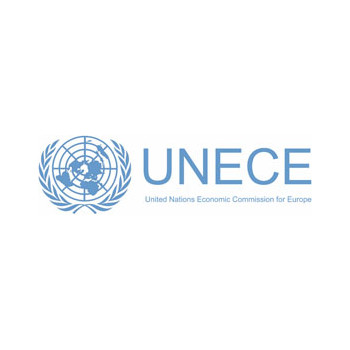UNECE Water Convention
The UNECE Water Convention (The Convention on the Protection and Use of Transboundary Watercourses and International Lakes)and its Task Force on Water and Climate, support countries in cooperating at the transboundary level when adapting to climate change adaptation and when managing and preventing flooding through guidance, projects on the ground and exchange of experience.
The special focus of UNECE is the transboundary dimension of Water and Climate Change adaptation. The transboundary nature of almost half of all watercourses worldwide entails that climate change risks and challenges are shared and that solutions need to be coordinated. Transboundary cooperation in the development of adaptation strategies is necessary to ensure that unilaterally taken measures do not have unintended effects in neighbouring countries thereby increasing vulnerability and causing controversy over water use. Without cooperation there is the risk that adaptation measures chosen in different riparian countries might be diverging or even contradictory. Cooperation on adaptation can therefore prevent conflicts. Moreover it can also bring numerous benefits through the pooling of knowledge and resources.
Water and Climate Change Activities
- The Guidance on Water and Adaptation to Climate Change and Model Provisions on transboundary flood risk management
The Guidance on Water and Adaptation to Climate Change adopted in 2009 provides step-by-step advice for decision makers and water managers on how to adapt to climate change. Following the publication of the “Guidelines on sustainable flood prevention” In 2005-2006, model provisions on transboundary flood management were developed in cooperation with WMO and adopted by the Meeting of the Parties to the Water Convention.
- Programme of pilot projects on adaptation to climate change in transboundary basins (BULLETPOINT B)
The eight pilot projects (link) aim to strengthen the capacity of countries to adapt to climate change and to create positive examples demonstrating the benefits of, and possible mechanisms for, transboundary cooperation in adaptation planning and implementation. Some of the pilot projects such as the Dniester project and the Sava project focus on transboundary flood risk management.
- Platform for sharing experience on adaptation to climate change (BULLETPOINT C)
Collection and exchange of experience is ensured through a platform for sharing experience on adaptation to climate change in transboundary basins. In 2009, a workshop was organized on transboundary flood risk management jointly with WMO which resulted in a publication on this topic In 2010-2012, Three workshops have been heldwhich also included presentations and discussions on flood risk management. They provided a forum for sharing experience between the pilot projects and other ongoing initiatives, as well as an analysis of the specific challenges of adapting water management to climate change in the transboundary context. In addition, a core group of representatives of the pilot projects has been created, which meets annually and enables a direct exchange of experience between the projects.
Water and adaptation to climate change
Find Guidance Documents and Pilot Projects on adaptation to climate change in transboundary basin of the UNECE Water Convention. > Read more
Learn more about UNECE.
Cooperation with APFM
The areas of cooperation are:
- The UNECE Water Convention and its Task Force on Water and Climate Change supports countries in adapting water management to climate change and climate variability in a transboundary context. In doing this, UNECE cooperates with WMO and its Associated Programme on Flood management, as WMO works on similar issues.
- The special focus of UNECE is the transboundary dimension of Water and Climate Change adaptation. WMO has contributed to the Guidance on Water and Adaptation to Climate Change, cooperates in the organization of the workshops and provides technical support to the implementation of some of the pilot projects, with particular attention to the pilot project on the Dniester where the project is focusing on flood issues.
